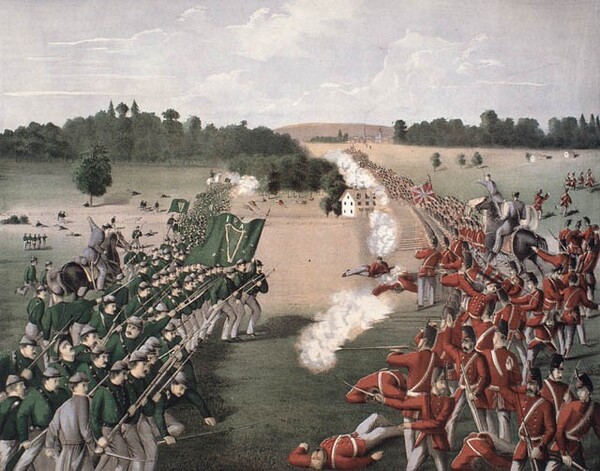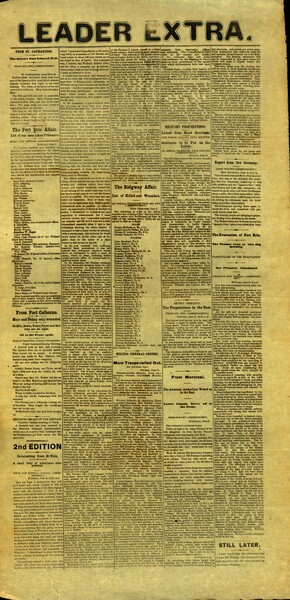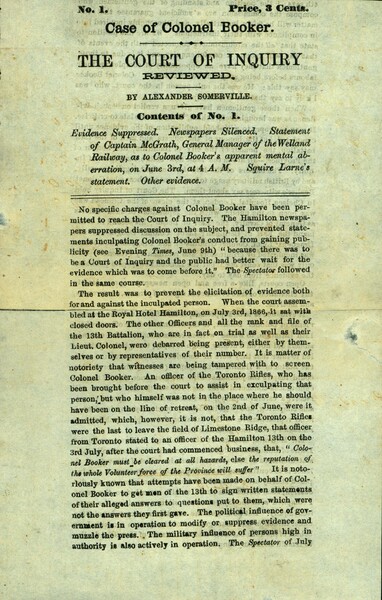Battle of Ridgeway
In response to the Fenian attack, two Canadian militia units were deployed to Port Colborne - the 2nd Battalion of the Queen's Own Rifles (QOR) from Toronto and the 13th Battalion of Royal Hamilton Light Infantry. The commanding officer of the 13th Battalion Lieut.-Col. Alfred Booker was ordered to travel to Stevensville to meet up with British troops and the Canadian militia. He was advised to avoid engaging with the Fenians while travelling. However, the Fenians had taken up a strategic position just north of Ridgeway that was along the 13th Battalion's route. Despite his orders to the contrary, Booker engaged with the Fenians.
The Canadians initially appeared to prevail as they forced the Fenians from their positions. But their advantage was short-lived. It is unclear exactly what went wrong, but the Canadians became exposed to Fenian fire. John O'Neill, the Fenian General, took advantage of the chaos and confusion in the Canadian militia and ordered a bayonet charge. The inexperienced militia was overwhelmed and fled. The Fenians briefly seized control of Ridgeway. They then retreated to Fort Erie in anticipation of the arrival of British reinforcements.
At Fort Erie, they encountered a small band of Canadians who defended the town. Troops were being transported to Fort Erie from Port Colborne on Captain Lachlan McCallum's tugboat W. T. Robb. The tugboat had been commandeered by Booker's second in command, John Dennis, who used it to patrol the Niagara River looking for Fenian activity. He arrived in Fort Erie on the afternoon of June 2 with 70 men from the Welland Canal Field Battery and Dunnville Naval Brigade, as well as some Fenian prisoners. They encountered some of the Fenians retreating from Ridgeway and a skirmish followed. Dennis initially ordered an attack against the Fenians, unaware that more Fenians were on their way from Ridgeway. Eventually, he was forced to retreat. Captain McCallum and some members of his Dunnville Naval Brigade fought with the Fenians before meeting up with the W. T. Robb which had embarked with the prisoners and volunteers.
Eventually the Fenians withdrew. Fenian reinforcements from the United States were unable to cross the Niagara River without being intercepted by the U.S. Navy. When the Fenians attempted to return to the United States they were arrested. Eventually they were released on the condition that they return to their home states.



